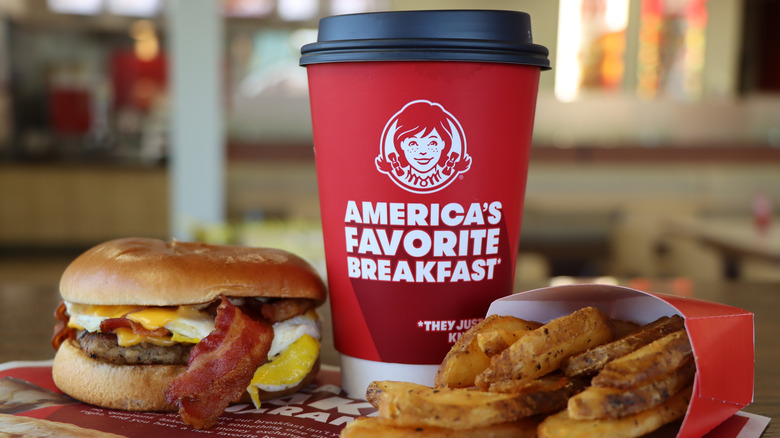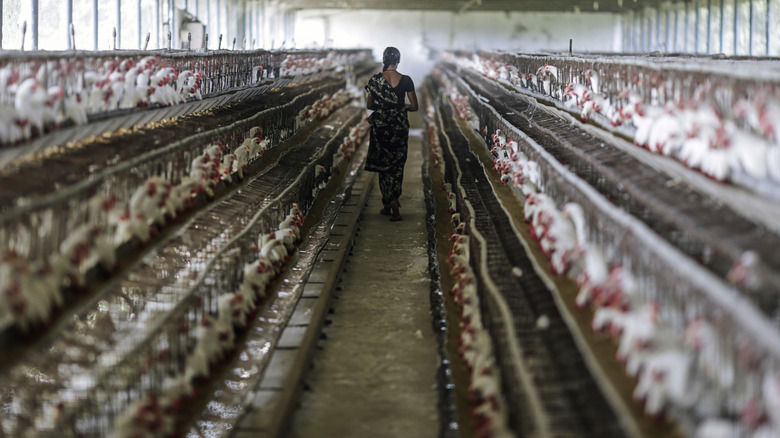The Real Reason Wendy's Is Being Sued Over Its Eggs
Yesterday, the social justice law firm Richman Law & Policy filed a lawsuit against Wendy's on behalf of the Food Animal Concerns Trust (FACT). A press release announcing the complaint alleges that Wendy's sources "most of its eggs" from farms with "inhumane" conditions.
Under the Animal Welfare section of their website, Wendy's states that in 2016, "we made a commitment to source 100 percent of our eggs for those breakfast locations from a cage-free environment by 2020. And as of year-end 2020, we have met that commitment." However, FACT claims only 5% of the chain's eggs come from cage-free conditions, and the remaining 95% are produced in confined spaces of less than 90 square inches.
In the text of the complaint, it's clearly stated that FACT isn't seeking any repayment. Instead, they request Wendy's to stop the false advertisements directed to Washington, D.C. consumers, as the suit was filed in D.C. Superior Court. The argument is that fewer people would purchase Wendy's egg-based products if they knew that the company was not upholding their own public pledge. "By representing its animal welfare program as 'industry-leading' and claiming its egg suppliers provide 'space and opportunities for animals to interact with their environment,' Wendy's deceives the majority of consumers who care about animal welfare," FACT's Executive Director Harry Rhodes commented in the press release.
Does this lawsuit have legs?
While it is difficult to guess how judges will rule on these cases, there are reasons to at least be suspicious of Wendy's.
First, Wendy's was very public about their plan for a cage-free transition. In 2016, HuffPost described Wendy's decision as the latest example of the cage-free movement gaining momentum. "Animal welfare is a core part of our company's role as a responsible corporate citizen," Liliana Esposito, Wendy's chief communications officer, announced in an accompanying statement. So, it's not as if Wendy's made the decision internally. The chain wanted to capitalize on the image of animal welfare, likely due to an increasingly concerned consumer base.
Then, The Humane League released its 2021 "Eggsposé." In it, they noted nine companies, including Wendy's, Wawa, and Arby's, that had all promised to go cage-free by 2020 and later refused to be transparent about the progress made towards this goal. This does not mean that Wendy's keeps their hens in horrific conditions. But one would think that if meaningful progress had either been made, Wendy's would boast about it as publicly as they did when they announced their intentions in 2016.
The problem, though, is that the legal complaint does not cite irrefutable proof of this 5% claim. We will just have to wait and see what further evidence is brought if the case is heard.

